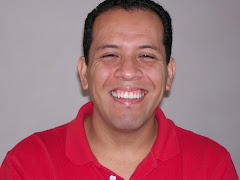
5 Secrets Every Online Writer Should Know
Make the right business connections in the world’s
fastest-growing freelance marketplace.
Join Search jobs Post jobs
If you're a new writer just starting a freelance career, you're probably feeling a little bit frustrated. Competition for online freelance writing, for beginners as well as for experienced writers, is fierce. How's a new writer to get a break? Here are some essential tips for successful online freelance writing for beginners.
1. Writing for free makes you look unprofessional. When visiting job boards, you'll find hundreds of non-paying gigs. These are ads targeted to new freelance writers, and they all say something like, "Although this is a non-paying gig, you'll get plenty of experience and exposure." Really, they're just looking for a hand-out. Any professional editor or potential client who sees these types of clips listed on your resume will not be impressed, since most publications looking for writers to work for free aren't professional publications. They will publish practically anything, because no professional quality writer would think of giving their work away to them without payment. If you want to volunteer your time and skills, then write for a respected charity in exchange for a published clip which really will look good on your resume.
2. You can create your own writing samples. Most online writing job ads state that they want to see clips or writing samples. One of the easiest ways to create your own writing samples is to start your own website or blog and use it to write about topics you're interested in getting paid to write about. Then, when you apply for freelance writing jobs, you can include a link to a relevant article on your site or blog. You'll find that many potential employers are more interested in seeing your writing style and ability to cover a topic than they are in whether you've written for big name publications.
3. If you're going to write for the web, learn about SEO. These days, most people who want to hire a freelance writer to write for their websites are looking for writers who understand search engine optimization. Website owners want people using search engines to find their sites. To do this, the website content must include the keywords people are searching for. For freelance writers, this means learning to incorporate keywords into their writing. Writing a keyword-optimized article is much more difficult than just writing a straight article, because you'll have to incorporate some tricky phrases into the text in a way that makes sense. Before you start applying for web writing jobs, you'll probably want to familiarize yourself with SEO and practice writing a few keyword articles for your own website.
4. Freelance jobs that offer to pay you in ad revenue will earn you little to nothing. A new trend for website and blog owners is to hire writers and offer to pay them a percentage of advertising revenue. Usually, the reason they offer ad revenue as payment is because they don't have the money to pay a writer. Trouble is, anyone who doesn't have enough money to pay a writer is probably running a very new site or blog, and they don't have money to pay for advertising either. This means that there will be very few visitors coming to this website, and little to no traffic means no one will be there to click on the ads. Thus, there will be little to no ad revenue to be earned. A website needs to have hundreds of thousands of visitors per day to bring in even a few hundred dollars per month in ad revenue. Bottom line, these types of offers are a waste of your time. If you want to earn ad revenue dollars, simply sign up with Google Adsense and add some advertisements to your own blog or website.
5. Don't fall for low-paying job offers. When you visit freelance writing job boards, you'll find a lot of ridiculously insulting job offers, like people who offer to pay you a dollar or two per article. These ads will tell you that if you write ten articles per day, you can earn $500 or more per month. If you're financially strapped, this may sound like an offer you're willing to consider. However, it's virtually impossible to write ten articles per day, and at such a low pay rate, the amount of work you'll put into it simply isn't worth it. In a month or less, you'll be burnt out and looking for a new career choice.
If you're looking for high-quality, well paying freelance opportunities, visit GoFreelance. You'll find hundreds of freelance writing, freelance editing, and freelance proofreading jobs that will offer decent pay rates for interesting work you'll enjoy. Since new jobs are added every day, you'll be sure of finding enough steady work to keep you busy.
Source






























































